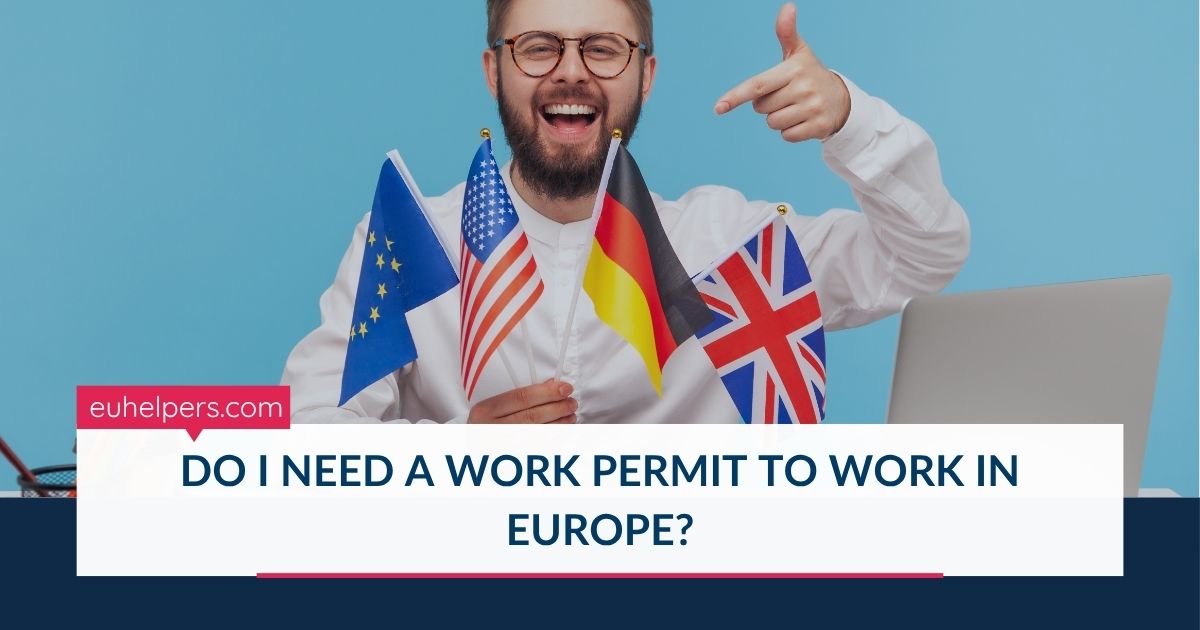
Europe is a diverse continent with multiple countries, each having its own rules for foreign workers. One common question for international job seekers is — do I need a work permit to work in Europe? The answer depends on your nationality, the country you want to work in, and the type of job you are applying for.
1. EU/EEA/Swiss Citizens
If you are a citizen of an EU (European Union) or EEA (European Economic Area) country, or Switzerland, you do not need a work permit to work in other EU/EEA countries. You have the right to live and work freely in any member state.
-
You may need to register your residence after a certain period, usually 3–6 months.
-
Some countries may require a registration certificate or proof of employment.
2. Non-EU/EEA Citizens
If you are from outside the EU/EEA or Switzerland, you generally need a work permit or residence permit with work authorization to work legally. The process varies by country:
-
Germany: Requires a work visa or EU Blue Card for skilled professionals.
-
France: Requires a work permit for most non-EU workers.
-
Netherlands: You must have a residence permit for work or a sponsoring employer.
-
Czech Republic, Austria, Belgium: All require a work permit or long-stay visa tied to employment.
3. Work Permit Exemptions
Some short-term jobs, seasonal work, or internships may allow you to work without a traditional work permit, often under a special visa category:
-
Short-term agricultural work
-
Au pair positions
-
Trainee programs or internships under specific agreements
4. Employer Sponsorship
Most non-EU citizens will need a job offer from a licensed employer before they can apply for a work permit. The employer may have to:
-
Prove that no local or EU citizen could fill the position
-
Submit documentation to immigration authorities
-
Ensure you meet qualifications and salary requirements
5. Why Work Permits Are Important
Working without the proper permit in Europe can lead to:
-
Deportation or fines
-
Difficulty obtaining future visas or residency
-
Employment restrictions or termination
Whether you need a work permit to work in Europe depends primarily on your nationality and the country where you want to work. EU/EEA citizens enjoy freedom of work, while non-EU citizens generally require a work permit or visa. Always check the specific regulations of your target country to stay compliant and ensure a smooth employment experience.
